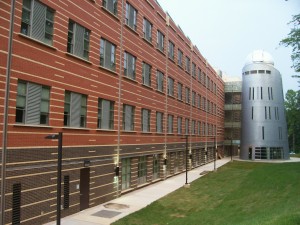Key information for official sites with agreements:
- Camp High Road is open unless specified on Camp High Road specific page
- C.M. Crockett is open only during periods specified on the Crockett specific page
- Meadowkirk observing requires explicit permission. See Meadowkirk page for details
- Sky Meadows State Park is open for vetted volunteers only unless posted on the Sky Meadows specific page
- Spruce Knob Mountain Center: See site specific page or contact site coordinator for availability
The Delta Aquarids is an average shower that can produce up to 20 meteors per hour at its peak. It is produced by debris left behind by comets Marsden and Kracht. The shower runs annually from July 12 to August 23. It peaks this year on the night of July 28 and morning of July 29. The waning crescent moon will not be too much of a problem this year. The skies should be dark enough for what could be a good show. Best viewing will be from a dark location after midnight. Meteors will radiate from the constellation Aquarius, but can appear anywhere in the sky

It’s a tough call, but I think the thin clouds will turn thicker later. The public night is thus CANCELLED.
More information about Great Meadow including directions and parking visit the Great Meadow Site page.

Public Night at C M Crockett Park for 3 August 2019 is CANCELED.
Weather forecasts are inconsistent but none are good. Cloud cover predictions vary from 26% covered to 90%. Precipitation chance forecasts range from zero to 43%. All agree humidity will be an issue with dew points just 1 to 3 degrees below air temperature. We don’t want to disappoint members of the public or risk optics and electronic mounts being caught in a stray shower or thunderstorm. Tough call this time.
Please read the C.M. Crockett Page for park details.

Our meetings on the second Sunday of the month, online.
Our meetings web page, has additional details.
We look forward to seeing you on Sunday evenings!
The Perseids is one of the best meteor showers to observe, producing up to 60 meteors per hour at its peak. It is produced by comet Swift-Tuttle, which was discovered in 1862. The Perseids are famous for producing a large number of bright meteors. The shower runs annually from July 17 to August 24. It peaks this year on the night of August 12 and the morning of August 13. The nearly full moon will block out most of the fainter meteors this year, but the Perseids are so bright and numerous that it could still be a good show. Best viewing will be from a dark location after midnight. Meteors will radiate from the constellation Perseus, but can appear anywhere in the sky.
